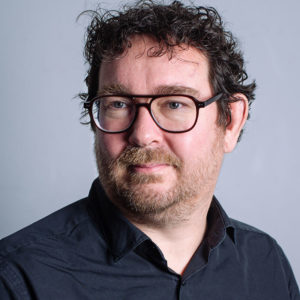Storytelling Centre is a unique knowledge base of applied storytelling, nationally and internationally. With clear methods we teach people to tell stories and listen.
Since our founding in 2012, we have gained an enormous amount of knowledge on applied storytelling. We have incorporated this knowledge into various methods and books. By participating in European innovation projects, we have also developed several specific methods based on our Share to Connect method.
Our most well-known method is the Share to Connect method. It includes 27 exercises, shows how to prevent fear of telling stories, demonstrates the importance of a safe environment when sharing stories, how to use storytelling in conflicts, and the power of sharing personal stories.
This storytelling method is for everyone and is already being used by municipalities, social organisations and district administrators.
You can download the Share to Connect-methode for free via this website.
We developed several specific methods based on Share to Connect. These are used to stimulate personal growth, to create social impact, for example by countering polarisation, and for language development.
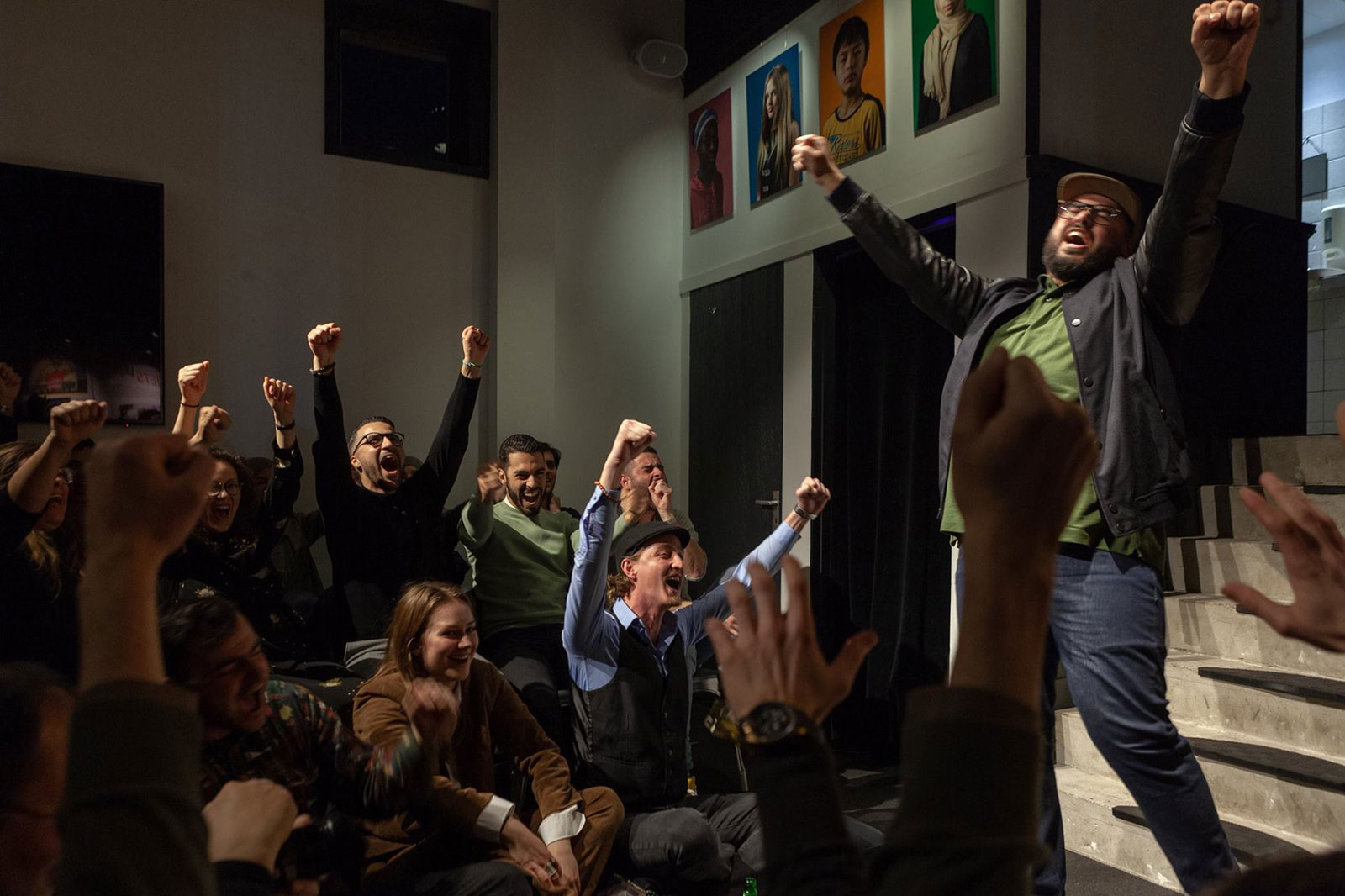
Storytelling contributes to a growth in self-confidence, self-respect and self-reflection. In this the aspect of being heard is very important. And you will be heard sooner if you can tell a good story. That is why we regularly offer training courses to different groups to learn how to tell a good story. Moreover, making a story helps you structure your thoughts and discover what you actually find important.
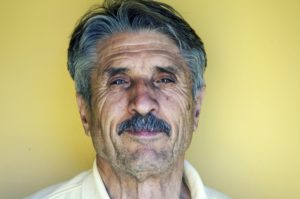
Many projects focus on women, but in there are also men who are in a vulnerable position in our society. They often came here in their early years to work, lost that work in one way or another and ended up in a downward spiral. They have a loss of self-esteem, feel that they are not taken seriously and feel shame. They become a single story. We have started a project within Golden Men to let these men discover their own story and to show them that they are not just this single story, but that their personality consists of so much more.
Read the whole story of this project
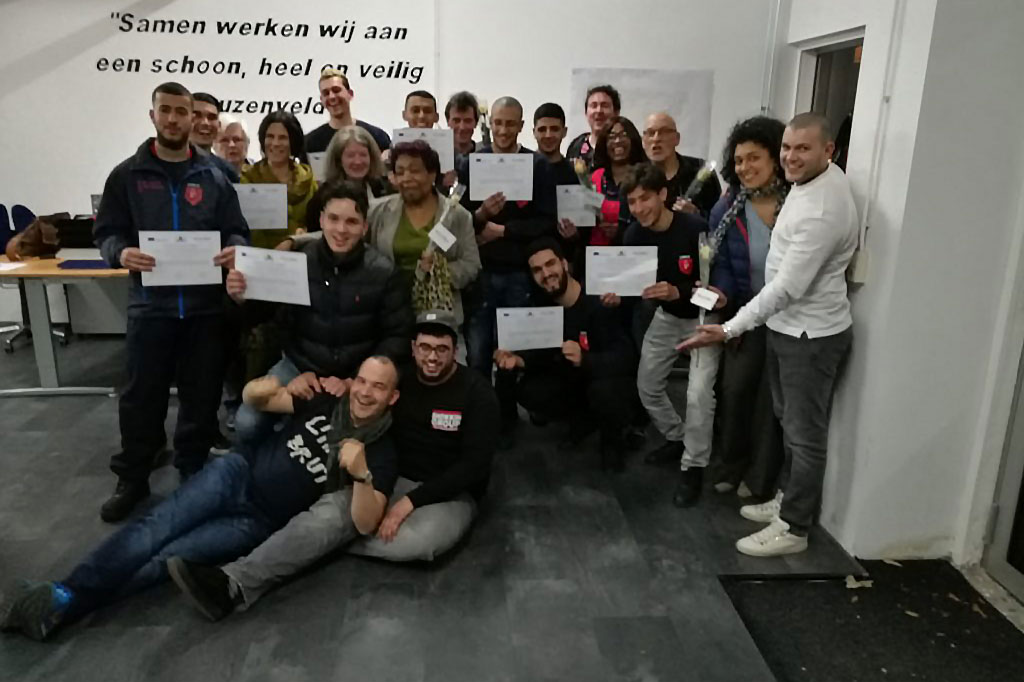
“The enemy is the one whose story you do not know.” That is the starting point for our training focused on conflict management. Together with the participants we look for the common denominator or common ground and we ask to make stories about that. We do this in culturally diverse neighborhoods in the Netherlands, but also in Palestine / Israel. Trainings are tailor-made, depending on the target group and the goal. This can range from neighborhood disputes to conflict areas or problems related to diversity and social insecurity.
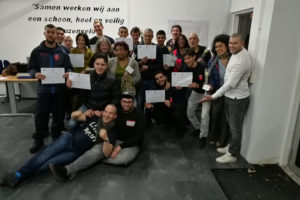
At the request of the OBA in Molenwijk, we developed a training course to connect young people and adults in that Amsterdam neighbourhood through stories. Many adults (45+) experienced the presence of certain groups of young people as a nuisance. Among other things, this reduced their sense of social security.
Read the whole story of this project
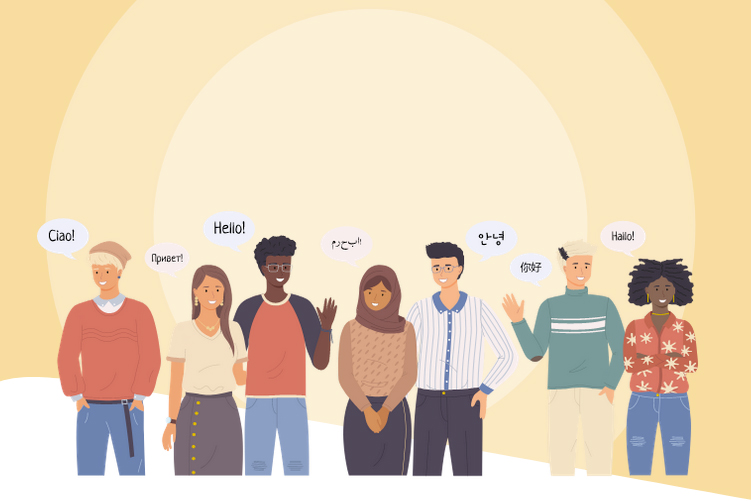
We teach language trainers to use storytelling techniques and other non-formal learning methods in their classes of Dutch as a second language. The training courses are suitable for professionals and volunteers who work with people with low language acquisition skills. We make language learning fun. This way, participants gain the self-confidence to participate in society. In this way, we contribute to identity reinforcement.

Many European countries have experienced an influx of refugees in recent years. Learning the new language is essential for their integration. But what if this is too big a challenge? During our language lessons for people with low language learning skills, we saw a need for an alternative method.
Although Belgium, Germany, France and the Netherlands have good formal methods for learning the second language, there is a group of newcomers for whom this is too much of a challenge. For example due to low literacy. The goal of this 2-year European cooperation project is therefore to develop an alternative method to give them the chance to learn a new language so that they can actively participate in society.
Read the whole story of this project
Polarisation endangers the society we have so carefully shaped together over the past decades. In this publication, Hester Tammes and Arjen Barel explain why sharing stories can help counteract polarisation. How can we encourage groups who feel distant from each other to engage in conversation and listen to each other’s stories?
They draw on theories of polarisation and storytelling, using real-world examples to shed new light on the power of sharing stories in the pursuit of a peaceful society.
You can order Storytelling and Polarisation through this site.
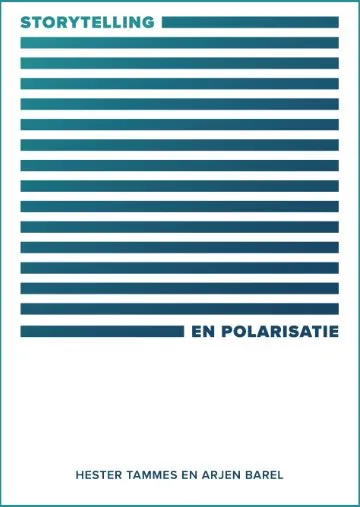
The World is Storytelling offers a fresh perspective on the ancient art of storytelling. Co-authored by Arjen Barel, Stu Packer, and Ronni Gurwicz, coaches and colleagues at Storytelling Centre Amsterdam, this book takes readers on a fascinating journey through the theory and practice of storytelling in our modern world. Whether you’re interested in job creation, language learning, conflict resolution, or simply enjoy folk tales, this book is a snappy, engaging, and insightful exploration of the power of storytelling. Drawing on personal experiences and years of workshop case studies, this book is the ideal companion for anyone interested in the art of storytelling and its impact on the world
“This book is full of practical advice for using humanity’s greatest resource, stories, to develop both individuals and communities.”
Robin Yassin-Kassab, Author of ‘Road from Damascus’
You can order The world is storytelling through this site.
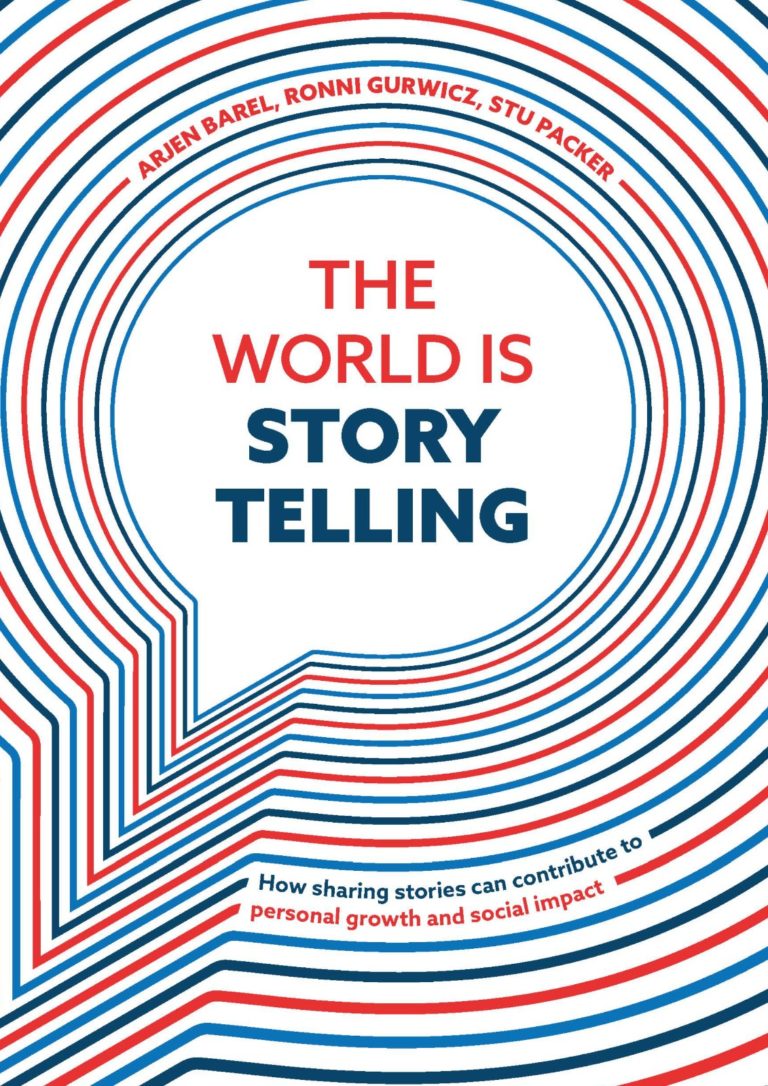
How do we give meaning to life? Especially in moments of crisis, such as burnout, the end of a relationship or the loss of a job, this question is crucial. With Arjen Barel’s storytelling method in the book Sterker Staan met je Eigen Verhaal (Standing Stronger with Your Own Story), you gain insight into every event or situation in your life in five steps.
Barel has been using this to help members of minorities and people with a migration background for years. His method is therefore lived-through and sincere, there really is something at stake. A no-nonsense and honest story about personal growth.
Sterker Staan met je Eigen Verhaal is sold by De Theaterboekhandel.
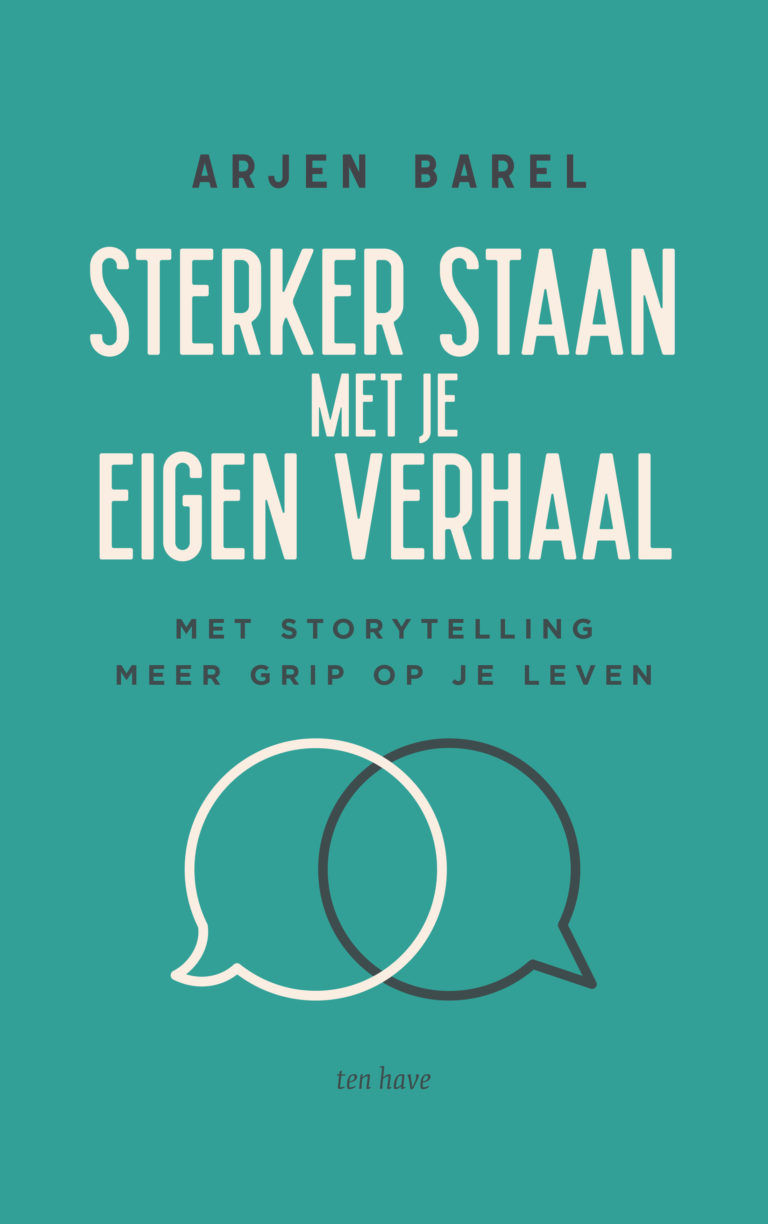
Arjen Barel is the founder of Storytelling Centre. He is a storytelling coach, dramaturge, director and producer and spends a large part of his professional life listening to stories and training people in the art of storytelling. He teaches Storytelling and Presentation at the Hogeschool van Amsterdam and regularly gives guest lectures in the Netherlands and abroad. He also trains professionals in the use of storytelling in youth and community work in different parts of the world. In recent years, he has trained groups in Morocco, Palestine, Lithuania, Slovenia, Great Britain, Israel, Germany, Greece, Spain, Albania, Kosovo, North Macedonia and Hungary.
Arjen studied Theatre Science and Cultural Studies at the University of Amsterdam and wrote the books Theatre & Marketing, Tension & Sensation (composition and editing together with Esther Lagendijk) and Storytelling and the World – this book will be translated in English soon, so keep an eye on our site or socials for the exact date that it will be published. He regularly writes interesting pieces about storytelling and society. Keep an eye on our blog page to stay informed.
We are partners in various cooperation projects with various countries in Europe, often with the support of the programme Erasmus+. Because together we stand strong. We make use of the expertise that the international partners have to offer and thus ensure a strong and positive social impact throughout Europe. The methods we develop(ed) in each project contribute to our knowledge base.
‘Voices of Resilience’ is a project aimed at improving mental health knowledge among Arab refugees and reducing the stigma surrounding it. The aim is to launch a comprehensive information platform on which not only personal stories but also educational methods and other support can be found. By doing so, we aim to empower refugees from Arab backgrounds and improve their mental well-being. Within the project, various activities will also be organised to increase visibility, build understanding and disseminate valuable information to those groups in society that will benefit. A project with partners from Croatia, Belgium, Finland and the Netherlands
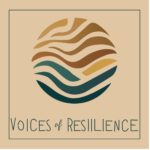

‘Stories XFM’ focuses on gender norms in stories. We still like to listen to fairy tales and folk tales, but they were often written down during when different views on gender and sexual diversity prevailed. To what extent do these stories still influence our thinking? And how can we break this? Perhaps we can still use the existing stories to talk about gender. On the other hand, we may need to rewrite them. This is what we are investigating, together with young people in Portugal, northern Macedonia, Italy and the Netherlands.


The aim of the Delicious Stories project is to develop a non-formal and fun method to promote the integration of isolated people with a migrant background into their host society. And combat discrimination and stereotypes.
In particular, the project aims to make cultural diversity visible and valued in public spaces, creating a dynamic of interaction and exchange among residents. Read more here.
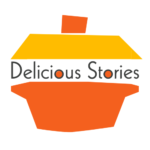

The general objective of the Cassandra project is to build capacity for storytellers as ‘socially engaged performers’: how can a storyteller convey personal messages and deal with social challenges through performative and artistic strategies. It also wants to raise the capacity of storytellers and storytelling organisations to work internationally, reach new audiences and confidently approach their role of platforming art for social good. Cassandra secured funding through Creative Europe with the Federation for European Storytelling as the primary partner. More info can be found here.
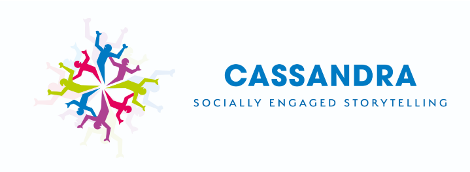

HIGHRES (Helping IntanGible Heritage REsilience through Storytelling) aims to promote the use of digital storytelling as a tool to preserve and promote intangible cultural heritage, creating new opportunities and tackling inequalities in rural areas. The main objective of HIGHRES is to provide local communities with the necessary competences to know, keep alive, transmit and promote their intangible heritage through digital narratives, thus ensuring that such heritage is not lost but rather used as a tool for sustainable local development.
In this project, co-funded by the European Union’s Erasmus+ Programme, Storytelling Centre works together with partners from Spain, Portugal, Italy and Latvia.
More information can be found on the project’s website.


In the Alternative Ways I project, we developed a non-formal and interactive language training for people with low language acquisition skills together with professionals from France, Germany and Belgium.
As a follow-up, since December 2022 we have been working with organisations in Belgium, Norway, Germany and the Netherlands to develop a non-formal method to help people who are distanced from a society, such as migrants and refugees, to become integrated.
Look here for the Alternative Ways method and more information on the interactive language training. As soon as we are further along with the development of the civic integration method, it will also be available on the website and downloadable.
Both projects have been and are co-funded by the European Union’s Erasmus+ Programme.
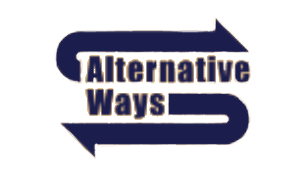
CIP promotes the acquisition of Facilitation Competences for Culture and Adult Education Professionals to bring about creativity and innovation competences of citizens and adult learners.
The project aims to help artists and culture professionals develop new services by developing an entrepreneurial mindset and taking on board 21st-century skills in order to better reach out to their audiences in the new socio-cultural context and to develop their potential as creativity skills coach in business, community work, formal and non-formal education and training. The project also aims to develop adult learning models and material to better convey the creativity skills offered by the culture professionals into innovative thinking skills for adult learners.
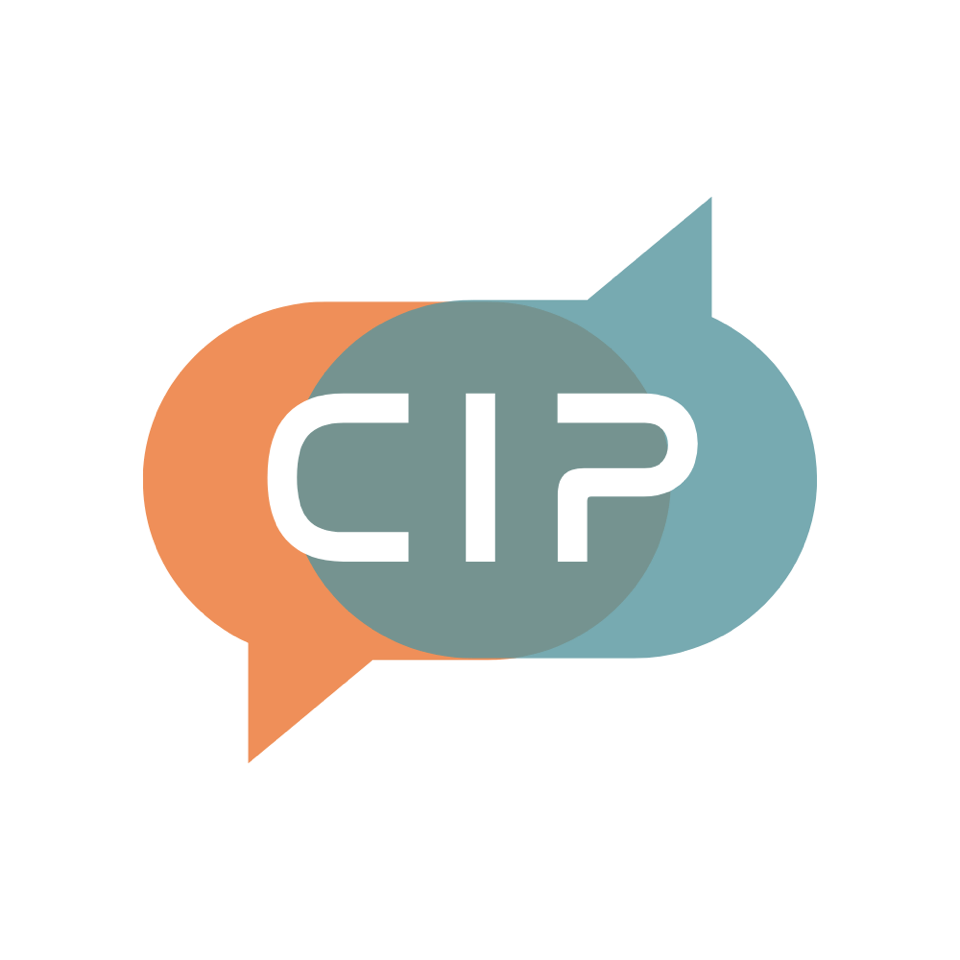
Everyone has gold in them, but sometimes you have to dig a little deeper to find it. We have experience with this by working with the Golden Men. Now, together with partners from the United Kingdom, Hungary and Greece, we are looking to deepen the storytelling process even further in order to work with vulnerable groups. VU University Amsterdam researched the process and provided the academic foundation. For this project, Storytelling Centre collaborated with DW-RS productions.
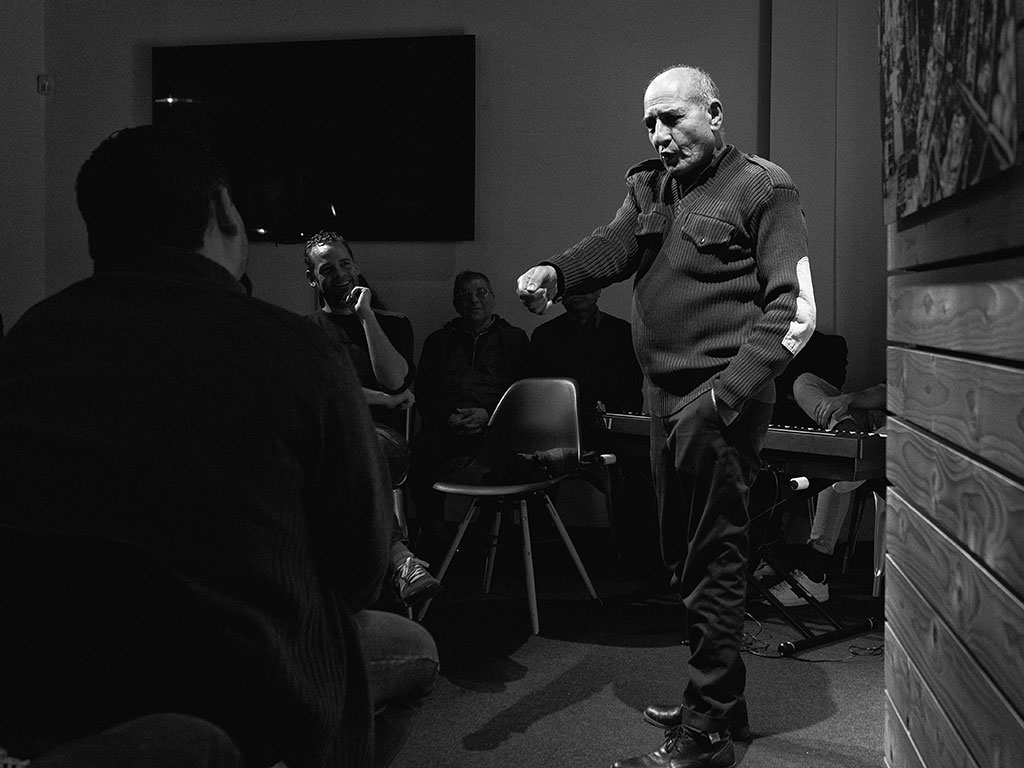
How can you use storytelling as an intervention to reduce polarisation? We have put this into practice a number of times and now participate in a European project to develop transferable tools for this.
The Stop! project intends to produce a board game, but also a handbook with methods for community and youth workers who want to bring groups together. Read more about this project here and have a look at the website of the project here.
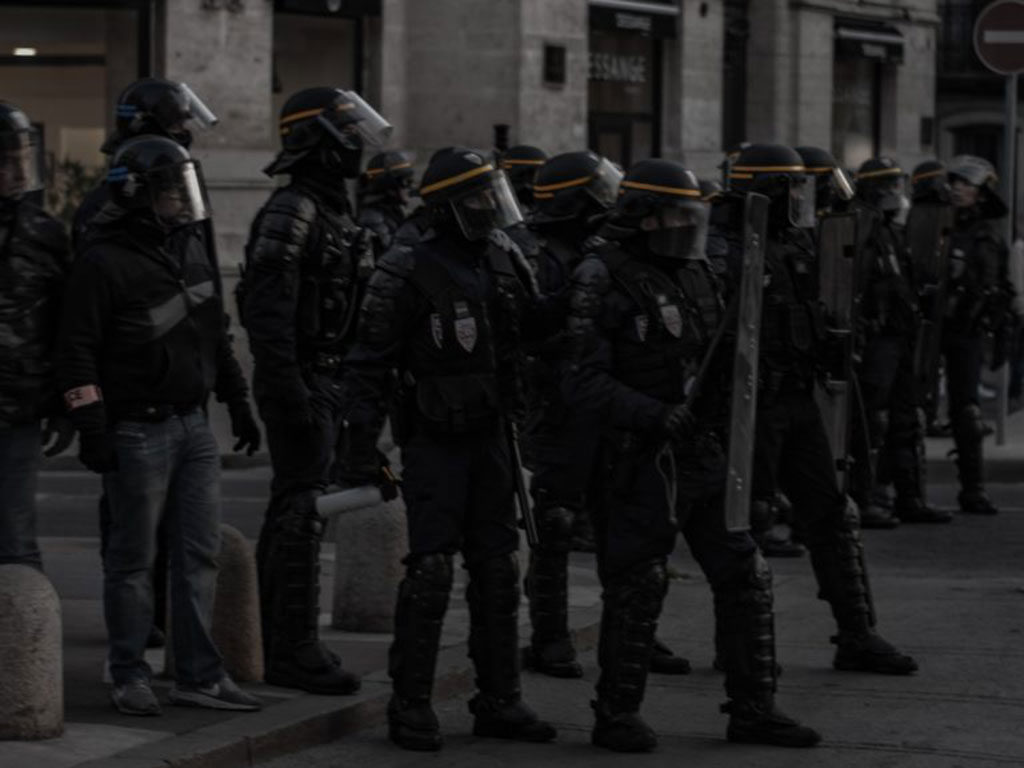
In the Picture your Story project of Erasmus+ we developed a toolkit that connects young people with different cultural backgrounds in (potential) conflict areas. This enables them to build strong, resilient, respectful and peaceful communities. The PicS Toolkit has been developed and tested by several European organisations, all contributing their own expertise, based on research done for this project by Hogeschool van Amsterdam. Click here for the toolkit and more information.
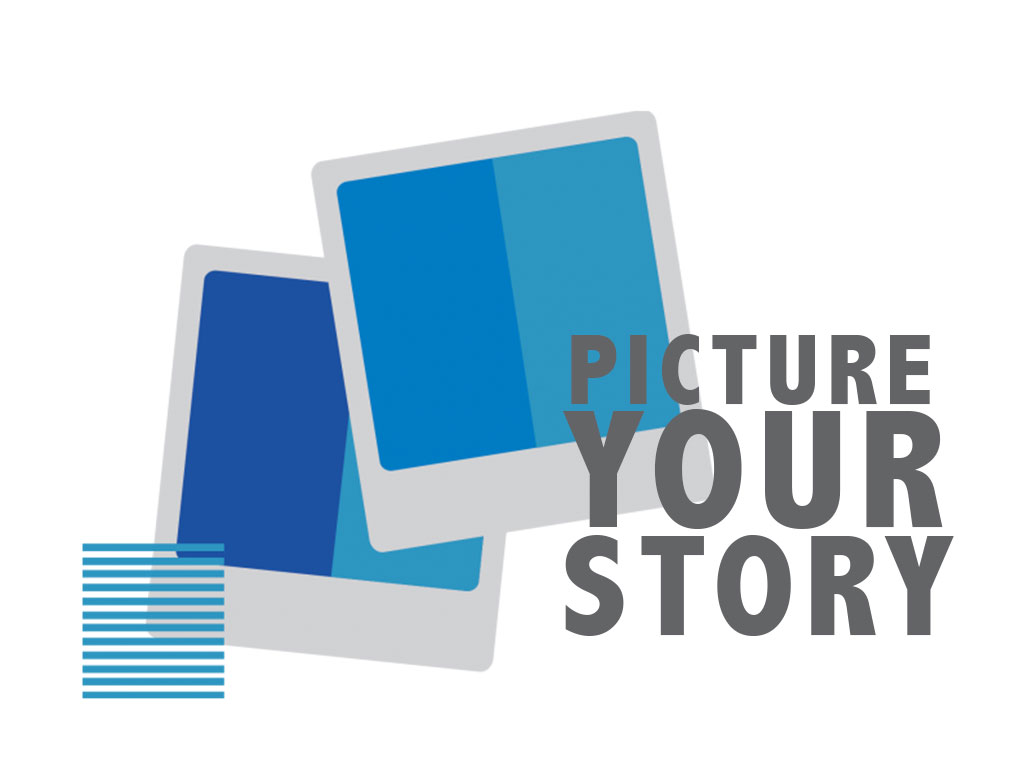
Get in touch and find out how our services can improve your company, organisation or customers.
Contact us for a free appointment or consultation
